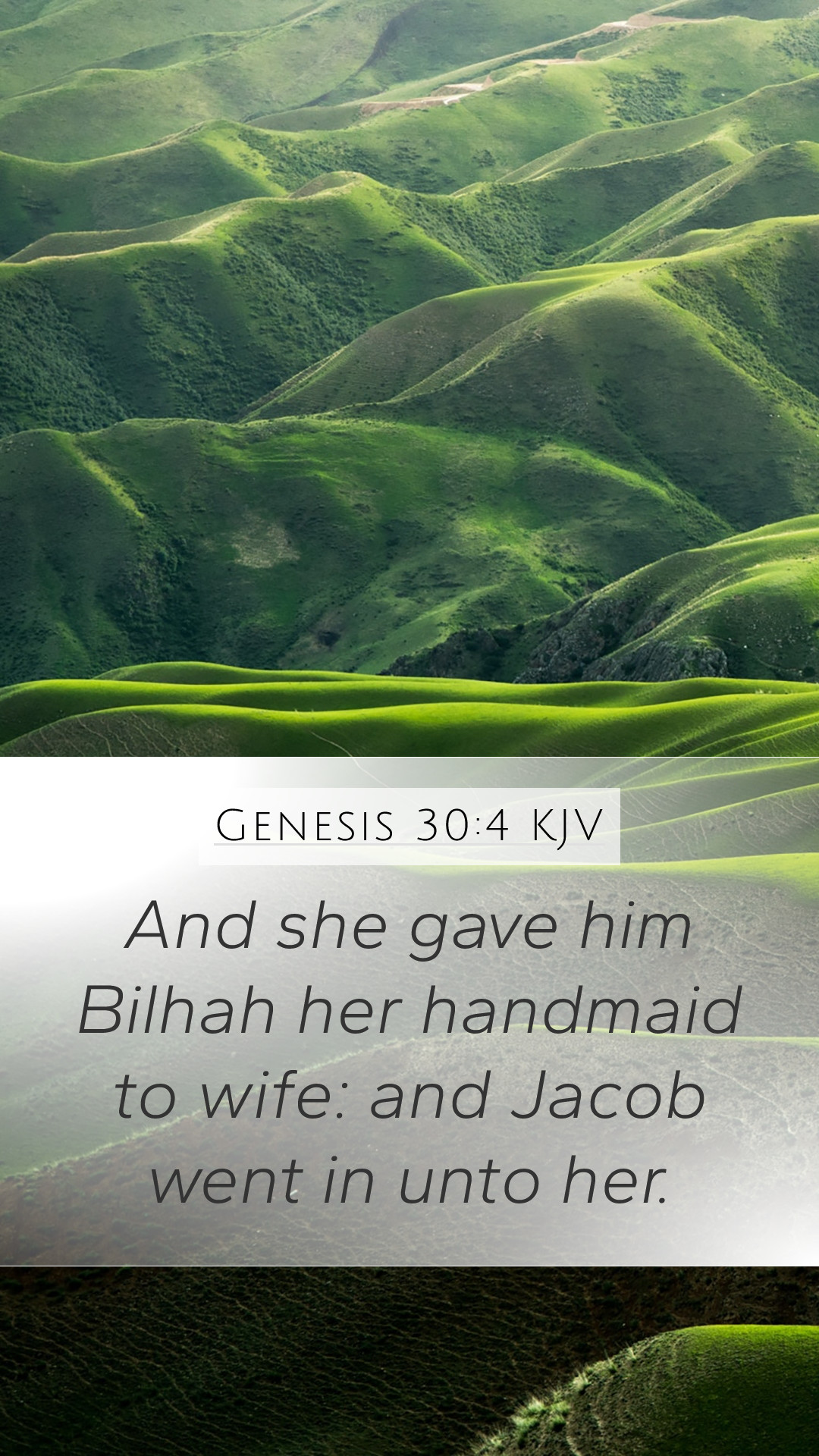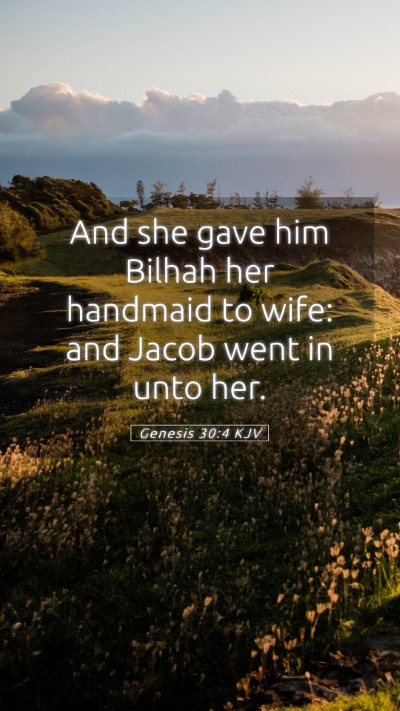Bible Verse Explanation: Genesis 30:4
Genesis 30:4 says: "And she gave him Bilhah her handmaid to wife: and Jacob went in unto her." This verse is part of the narrative surrounding Jacob, Rachel, and Leah during a time of familial strife and competition for Jacob’s affection and offspring.
Contextual Overview
This passage occurs within the broader context of Jacob’s family drama. Rachel, feeling envious of her sister Leah's ability to bear children, decides to give Jacob her maidservant, Bilhah, in an attempt to have children through her. This reflects the cultural practices of the time, where surrogacy was accepted to produce offspring.
Biblical Exegesis and Interpretations
The verse encompasses several themes that are vital for understanding the overall narrative:
-
Competition and Jealousy:
Rachel’s actions are driven by her jealousy of Leah, who has borne Jacob several children. This theme is a critical insight into human relationships, where envy can lead to drastic measures.
-
Cultural Context:
In ancient Hebrew culture, having a male heir was of utmost importance, leading to the involvement of maidservants as surrogate mothers.
-
Divine Sovereignty:
The passage demonstrates God’s overarching plan through seemingly flawed circumstances, as He later blesses both Rachel and Leah despite their rivalry.
Commentary Insights
Insights from renowned biblical commentators reveal deeper meanings:
-
Matthew Henry:
Henry emphasizes the pain of jealousy and rivalry, presenting it as not only destructive to familial relationships but also as a reflection of spiritual discontentment. He suggests that Rachel’s actions stem from her desire for validation, which can serve as a warning against letting earthly desires dictate actions.
-
Albert Barnes:
Barnes notes the cultural significance of surrogacy in this passage and highlights the moral implications of Rachel's decision. He argues that this act of employing Bilhah raises questions about faith and reliance on God’s timing versus human solutions to problems.
-
Adam Clarke:
Clarke draws attention to the theological implications, noting that despite human failings and schemes, God’s plans unfold nevertheless, and His blessings extend beyond the means of humanity’s understanding or control.
Applications to Daily Life
Understanding Genesis 30:4 equips readers with key insights for personal reflection:
-
Dealing with jealousy:
Consider how envy can affect our relationships. One might self-reflect on situations that invoke jealousy and recognize the potential harm it can cause.
-
Trust in God's timing:
This verse serves as a reminder to trust in God’s plan rather than resorting to our own schemes to fulfill desires.
-
Value of familial bonds:
Encourage the importance of nurturing relationships over succumbing to rivalry and competition within families.
Related Bible Cross References
- Genesis 29:31-35 - Leah's children and Rachel's envy.
- Genesis 25:21 - The struggles of Rebekah's barrenness.
- Genesis 16:1-2 - The story of Sarai and Hagar.
Further Study Tools
For those interested in deeper study, consider using various Bible study tools and resources such as:
- Online Bible study platforms for group discussions
- Bible study guides that focus on family dynamics
- Courses that cover Old Testament narratives
Conclusion
In summary, understanding Genesis 30:4 goes beyond its surface narrative. It invites us to explore themes of jealousy, cultural practices, and divine sovereignty, all while offering practical applications for our lives today. Engaging with public domain commentaries helps illuminate the verse's meanings, providing readers with a comprehensive biblical understanding.


